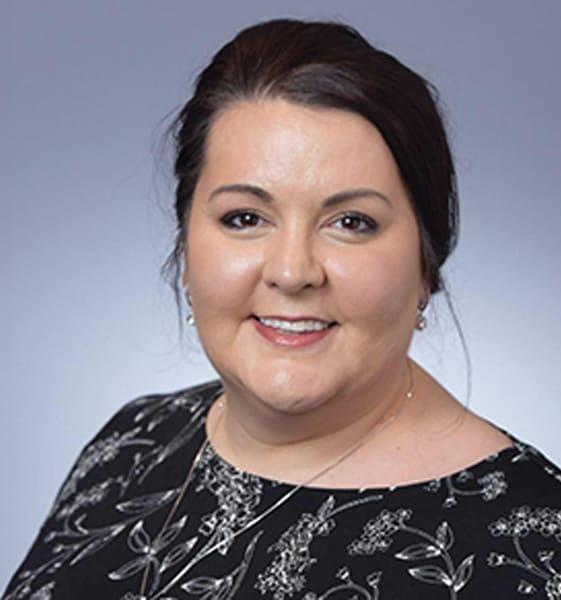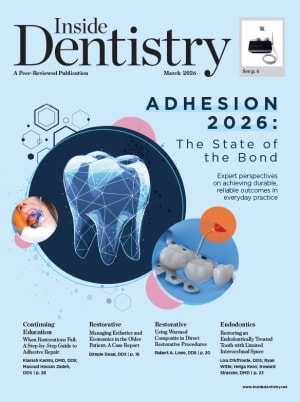Beverly Wilburn, DAADOM, and Emily Estrella, FAADOM
Many dental teams continue to have open positions. Of course, hiring is just one component of creating a fully staffed, inspired team, which is the ultimate goal. The two other components are minimizing the impact that vacations, sick days, and open positions have on the practice, and, above all, creating a culture that makes team members want to stay long term. Beverly Wilburn, DAADOM, and Emily Estrella, FAADOM-both recipients of the American Association of Dental Office Management's Practice Administrator of the Year award-discuss why cross training is so important and how to build a culture where team members are challenged, valued, appreciated, and recognized for what they contribute to the health of their patients and practices, resulting in lower team turnover. Let's hear what these expert dental practice managers have to say about creating and maintaining successful teams.
Cross Training: Protecting the Practice
Beverly Wilburn, DAADOM: A lot of practices still seem to be short-staffed. I think we can all agree that being short staffed can impact everyone, from the team and dentist to patients. I host a couple of social media groups specifically for dental managers and industry professionals. I've heard from these groups that morale is down, which has a lot to do with being short staffed. If you're pulling the weight of two people, it can be tough.
Emily Estrella, FAADOM: I agree. At a busy practice, there's so much to get done, but I firmly believe in a good work-life balance and don't think it's fair to the team if one team member or all the team consistently have to work long hours. The key word here is consistently. We've all had team members call in sick and need to cover their responsibilities for the day. But if you have an open position for weeks or even months, it can really affect everyone's overall morale due to the added responsibilities and stress of a missing team member.
Wilburn: I used to believe the administrative team had their own place and the clinical team had their own place. But as we are shorter staffed, cross training can be a really good way of filling in gaps. When we're busy, it may be hard to fit cross training-or any type of training-into the schedule, but we need to make it a priority so we can protect the practice if we are short a team member. Cross training can be done during morning huddles and weekly meetings. I've found it's best to set aside an hour or two a week. For example, we cross trained my dental assistants to present treatment plans. We had them observe a member of the front office team during the treatment and financial conversation, did some roleplaying exercises, and then let them try it. I've seen skills in them that I didn't necessarily expect to see. They are good at discussing the value of treatment because they really believe in what the doctor is recommending. I have also had what we call a floater-a Steri-tech person who's got a lot of clinical knowledge but didn't have any front office knowledge. Now they're able to come up front and help the administrative team out.
Estrella: We're a smaller practice, so in terms of cross training, except for clinical treatment, we all can do it all-so cross training happens when the new hire is first hired. It's part of the onboarding and training process for our new hires to know roles and responsibilities for their position along with the rest of the team. We start by cross training the most critical practice roles, which could be how we answer the phone and put the patient on hold to the daily checklist of equipment maintenance. Personally, if I can help out, I offer assistance in many ways, whether a clinician needs assistance with a patient, engaging the patient in regards to treatment, or even performing the proper office maintenance procedures, such as monitoring the maintenance cycles, making sure clinicians are running the lines daily, shocking the lines quarterly, changing out traps, and all the many thigs our clinical team members do behind the scenes. There's really nothing that is "not in my job description" because my job description along with everyone else's is to deliver a quality patient experience and enable health. I am constantly educating myself and actively encouraging others to promote a culture of learning. We are a team. That means we all pull together. In addition to cross training team members who can cover for open positions, creating a culture of appreciation, respect, and recognition can prevent turnover in the first place.
Creating a Culture that Retains Talent
Wilburn:Retaining staff starts with finding out what people are really good at, what makes them happy and fulfilled. Not everybody is good at everything, so if we can find out what they're good at and what they really enjoy about their job and the parts that they really love, we can build our systems around that and maybe outsource what we're not good at. And if we give people what they're good at and we give them what they love, they're going to stay.
Estrella:I agree. I also think forming strong bonds through practice culture helps with team retention. When we have new hires, we have them fill out what we call a "Let's Be Friends" form that captures details like what they love about dentistry, about their last job, what they are inspired by, their role models, as well as their life goals and professional goals. We also capture birthdays, favorite foods, and information like that. From that information, we can create great growth plans and hold each other accountable. The first part is growth-personally and professionally. The second part is celebration.
Wilburn: Absolutely. It's Office Management Appreciation Month in September, and we celebrate it. We like to get the whole team involved and the patients as well. This year I understand CareCredit, in partnership with the AADOM, has expanded the celebration to include the whole management and administrative team. I think that speaks volumes to the shifting roles in today's practices. The team can find ready-to-use assets and celebration ideas at omam.carecreditvirtual.com. We've celebrated in the past with food for the team, treats, and letting our patients know about the festivities on social media. But Office Management Appreciation Month is just one way to celebrate. There are so many more.
Estrella: We've found it can be as simple as remembering special dates-which we captured from the "Let's Be Friends" form. It's about being thoughtful. One thing we do is a gratitude tree, where we plant the seeds of appreciation. Every monthly huddle everyone submits notes showing appreciation for the little and big things-from sharing cookies to saving a case. It's also nice to give out little rewards like coffee cards or those cookies I mentioned. We are also purposefully thoughtful with our patients. We go over every patient coming in that day during the morning huddle so we can all recognize a recent event in their lives. And, if a patient had a particularly long or involved treatment done, we write them a note that very day to show we appreciate them. It's little things like this that often lead to great patient reviews and retention.
Wilburn: We do the same. We've brought in lunch, and we've done a half day of chair massages to get a little relaxation during breaks. These are all great ideas. In addition, I'm a big fan of bonus plans. Not everyone is, but it works in our practice. One way to do a bonus plan is to reward an individual for great patient reviews-that way the focus is on patient care and the patient experience, not production dollars. I think it's all about the management team recognizing that people need to feel heard, recognized, celebrated, and valued.
Estrella: Those are the words that lead to team retention and that build a culture that people don't want to leave-both team members and patients. The bottom line is, it has to be a priority and become a recognized part of the practice. Even shorthanded, it's important to stop and appreciate what others are doing to move the ship forward.
Wilburn: Exactly. It's an investment of time that produces a high ROI, especially in retention. We invest time in training and cross training. Investing time in growth and fulfillment is equally as important. Emily, may I be the first to appreciate you and wish you a happy Office Management Appreciation Month.
Estrella: Thank you. And same to you. I hope it's filled with fun and festivities.


